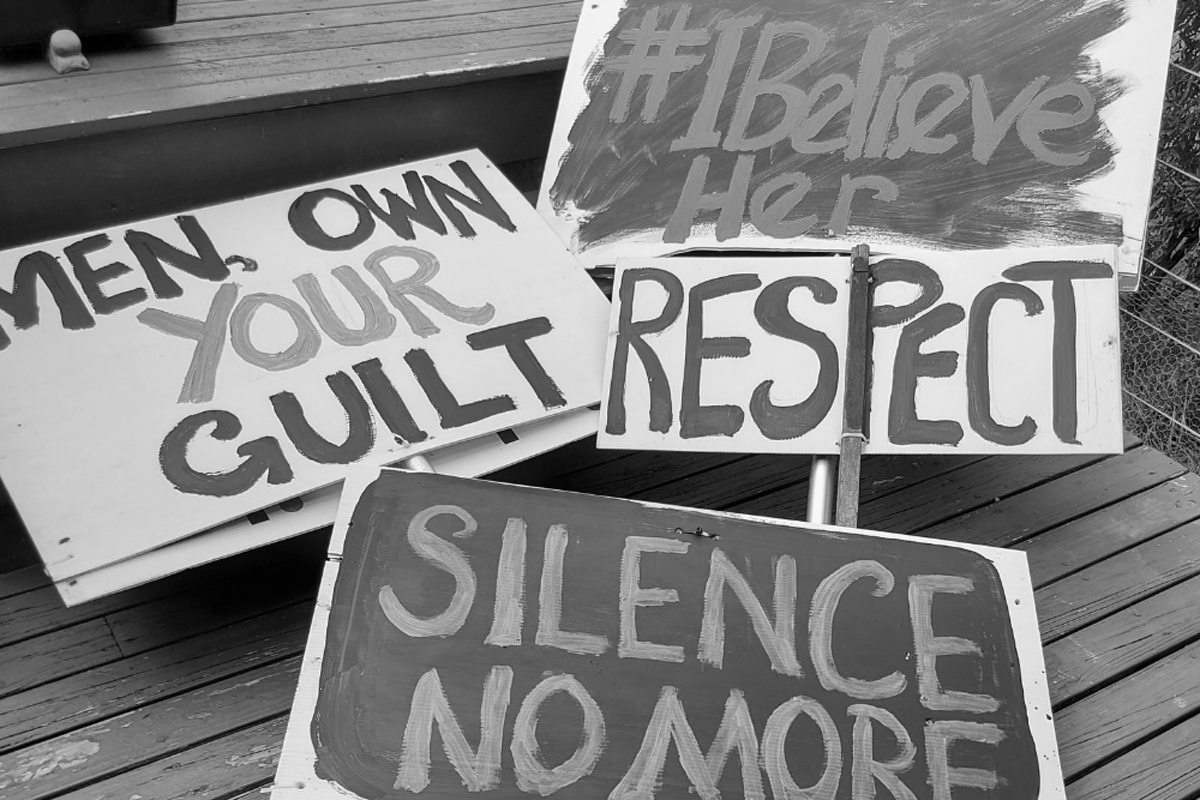
Late last week, news emerged out of parliament that the Federal Government had controversially blocked a bill that could have led to the introduction of an independent inquiry into Christian Porter's fitness to retain his position as a cabinet member. The fresh push came courtesy of Greens senator Larissa Waters; who earlier this month, announced she wanted to introduce a private member's bill into the senate. The actions taken by the Federal Government have since been labelled "absolutely revolting" by the Greens and "unprecedented" by Labor; leading many people to ask the same uniting question – how far will the government go to protect its 'boy club'?
How did we get here?
In March, Waters presented a petition from the March 4 Justice Rally in parliament; complete with 90,000 signatures from people calling for an independent investigation into Porter's fitness to serve as a minister. As Waters wrote on Twitter on June 1, prime minister Scott Morrison allegedly "ignored those calls" – a clear sign of inaction that prompted Waters to take the next course of action. During the same Twitter thread, the Greens senator announced that she wanted to introduce an independent inquiry into cabinet minister Christian Porter; following on from the historical and damming rape allegations that were brought to light earlier this year.
When the Senate next sits, I’ll introduce a bill for a Commission of Inquiry into whether Mr Porter is a fit and proper person to hold any Ministerial position. 6/8 #auspol #ChristianPorter
— Larissa Waters (@larissawaters) June 1, 2021
When Waters tried to introduce the bill last Wednesday when the senate finally sat; she was completely blocked from being able to debate the bill in parliament – on two seperate occasions and supported by One Nation and independent senator Jacqui Lambie. It was a move that pushed Waters to address the senate; responding to the block by announcing, “this is a government that thrives on secrecy. We all knew this, but this is a new low.”
“To stop a senator from introducing a bill for a measure of transparency that goes to the functioning of this democracy is an absolute outrage. It is an outrage to process and democracy - but more so it is an outrage to survivors of sexual assault everywhere.”
View this post on Instagram
What has prompted the push for an inquiry?
In late February, news broke that prime minister Scott Morrison had received a letter detailing an alleged historical rape by a cabinet minister in the Federal Government which occurred in 1988. As we later learned on March 3, the minister in question is former attorney-general Christian Porter; who vehemently denies the allegations and continues to maintain they are false.
The NSW Police have since investigated the claims, coming to the conclusion that they could not continue the pursuing the claims due to insufficient admissible evidence.
This is not the first time the government have ruled out the possibility of an enquiry. In early March, the prime minister stated; “My judgment is based on the report of the police … They are the competent and authorised authorities to make the judgments about any such allegations. They have made their conclusions and, as people have said in similar occasions in the past, that’s where the matter rests.”
The comment came following numerous calls from opposition leaders for the government to take proper action against the allegations. But after no show of commitment; and following Porter's discontinuation of his defamation case against the ABC and journalist Louise Milligan – renewed calls for an independent inquiry came to the forefront again.
How is the government able to block the bill?
According to the APH website pertaining to the introduction of member's bills into parliament, "the right to propose legislation is not restricted to the government of the day," and "any senator or member of the House of Representatives may introduce a bill..." Once the motion has been agreed to and approved by the originating house, the bill is formally introduced and read for the first time.
However, in the case of senator Waters, her bill was blocked from being introduced; a situation she claims has only occurred five times in the entire history of the Federal Senate. During the hearing, Waters reportedly demanded to know which senators had shut down her proposal prior to the opportunity for debate. As far as we know, she did not receive an answer at the time.
Where does the inquiry go from here?
It's clear that senator Waters is in no hurry to abandon the fight for an independent inquiry into the allegations surrounding Christian Porter and his career in politics. During the hearing, she reminded fellow politicians that she was "not going to let this drop" and neither would the "the 90,000 people that signed that petition" or "the [female] 51 per cent of the population." The most recent update from senator Waters on the matter was a tweet confirming that she would "keep reintroducing the Bill over, and over, and over again, until either the government or One Nation realise that the women of Australia deserve better and that all sexual assault allegations must be taken seriously."
In the aftermath of last weeks' bill block; news broke today that Barnaby Joyce will be returning to parliament following an eight-month investigation into complaints regarding sexual harassment. Similar to the investigation conducted into Christian Porter, a statement by Catherine Marriott – the woman who lodged the claim – stated that the New South Wales Nationals had “been unable to make a determination about my complaint of sexual harassment against the former leader of that party … due to insufficient evidence."
Today also marked the day that Waters had pledged to have the bill referred to a committee for inquiry. More updates on this to come.
On Monday I’ll again try to have the Bill referred to a committee for inquiry. Failing that, I’ll move a motion to reintroduce the Bill. 7/8 #auspol
— Larissa Waters (@larissawaters) June 17, 2021
Image: Pinterest



